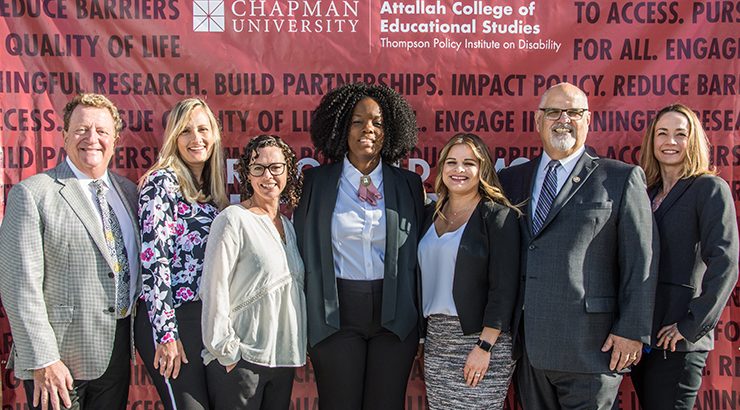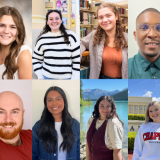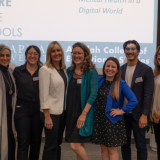
A Foot in Both Worlds At the Thompson Policy Institute Practice Informs Research and Vice Versa
May 16, 2019
Chapman University’s Thompson Policy Institute (TPI) recently held its fourth annual DisAbility Summit, where it shared its latest research findings and reinforced the importance of its community partnerships. The overarching theme of the summit was the principle that, at TPI, research informs practice and practice informs research. TPI’s Director Don Cardinal, Ph.D., described the relationship between research and practice as interactive.
“If there’s one thing we’ve learned at the Thompson Policy Institute, it’s that you can’t create policy in an ivory tower,” Dr. Cardinal said. “You have to understand what’s going on, be able to study and develop your research questions, and bring that back to the community. We’ve developed teams to create research and action in the community.”
Community Partnerships
TPI prides itself on its community partnerships, which include the Regional Center of Orange County (RCOC), a nonprofit organization contracted by the State of California to provide lifelong services and support for individuals with developmental disabilities and their families, and Tomorrow’s Leadership Collaborative (TLC), a fully inclusive public charter school located a short distance from Chapman’s Orange campus.

Dr. Don Cardinal speaking about FAST at the 2019 DisAbility Summit
TPI provides education and training for RCOC coordinators and supervisors, who provide services to more 21,000 Orange County residents with developmental disabilities and their families. TPI has also extended its partnership by serving as an educational consultant through ongoing workshops to support families and schools in the Individualized Education Program (IEP) process.
As a founding partner in the Center for Autism and Neurodevelopmental Disorders, TPI also oversees the operations of the Family and School Together (FAST) program, which offers a range of services to help youth, their families, and professionals in school settings.
At its recent DisAbility Summit, TPI announced that it is continuing to expand its research-based education and training services.
“We’ve just now come to an agreement with the Regional Center of Orange County to offer a similar program at the Regional Center, and I’m very happy to say the Thompson Autism Center at the Children’s Hospital of Orange County will have a more expanded version of FAST,” Dr. Cardinal said.
Action-Based Research
Alongside with research presentations on the state of inclusive education in California and the need for girls and women with disabilities in the STEM fields, TPI invited TLC’s founding principal and executive director Jessica Tunney, Ph.D., to share a bit about the day-to-day operations at TLC and how the school brings the inclusive education model to life. Dr. Tunney explained TLC is a new tuition-free public school, built from the ground up as a space for innovation and for “learning about learning” and “learning about teaching.”
In partnership with school such as TLC, the Thompson Policy Institute gains insight using a unique two-way model that both informs and is informed by TPI’s research. Attallah College student teachers have the opportunity to serve in TLC classrooms and observe inclusive teaching practices and assistive technologies in practice. In turn, TPI uses TLC’s feedback on the effectiveness of specific research-based practices to adapt and renew its research question and methods.
Ultimately, TPI’s long-term goal is foster inclusive education for all students, in California and beyond, and to inspire all education professionals to engage diversity rather than treat it.
Display Image at Top: 2019 DisAbility Summit speakers Drs. Richard Villa, Amy Jane Griffiths, Jessica Tunney, Angel Miles Nash, Audri Gomez, Don Cardinal, and Meghan Cosier

